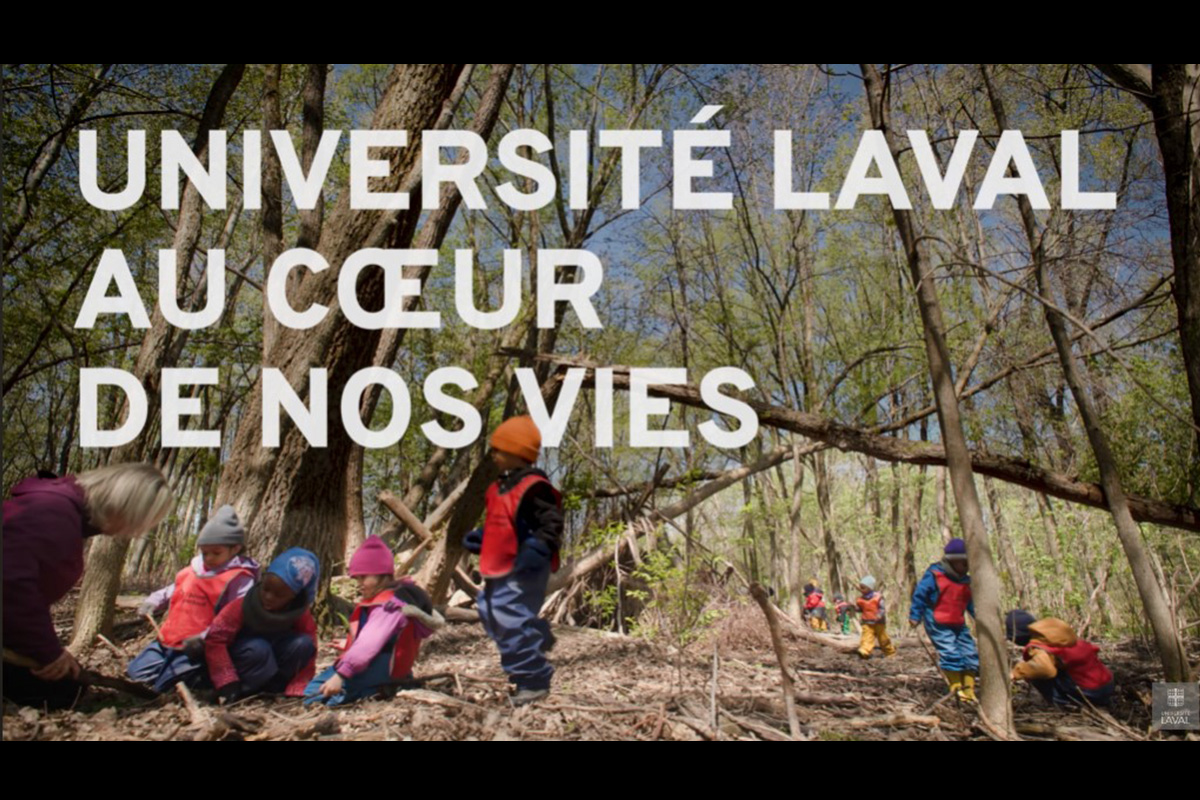Supporting early childhood learning and development through nature-based education
Professor Caroline Bouchard’s work builds on the synergy and dialogue between research, educational, and practice communities to further knowledge about nature-based education (NBE) in early childhood education services.
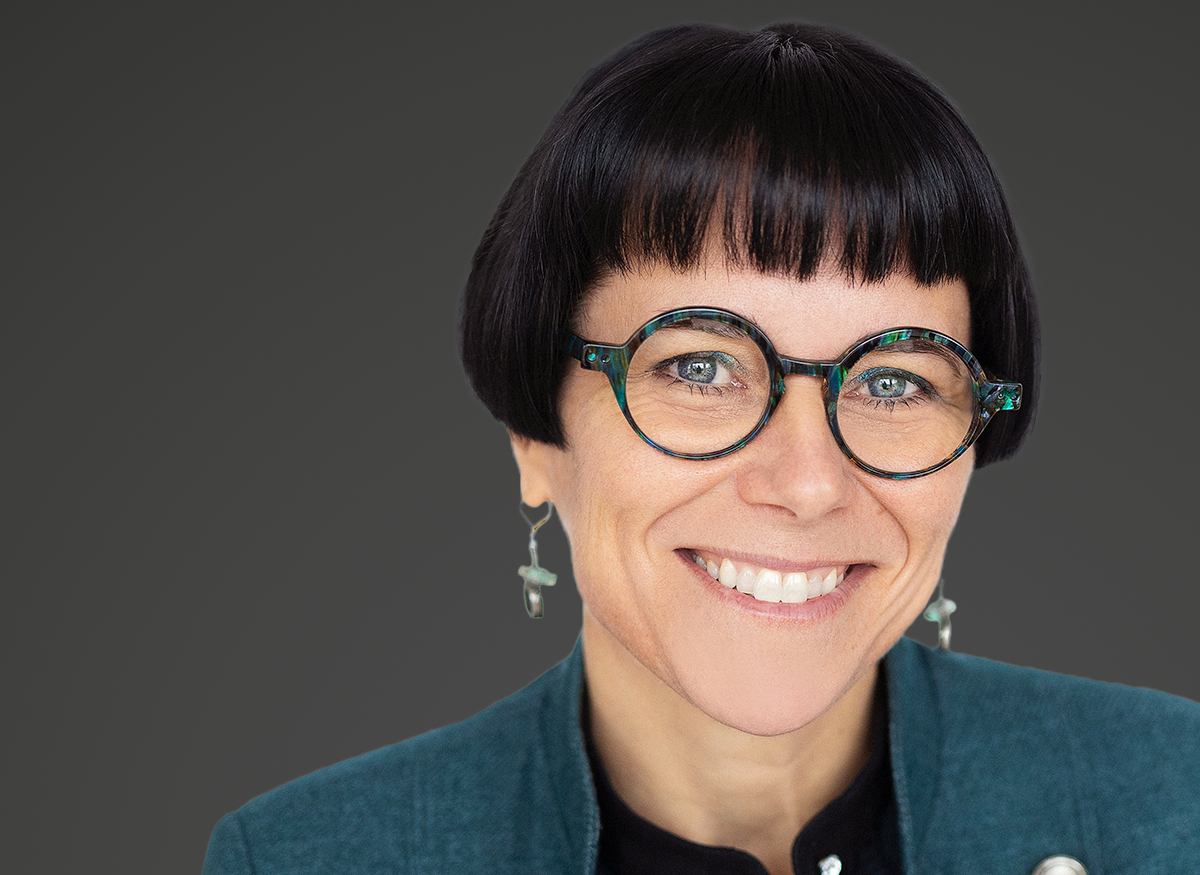
Project architects
Caroline Bouchard
Full Professor, Faculty of Education
Director of the Petite Enfance, Grandeur Nature joint research unit
Teams
The research team brings together collaborating researchers, postdoctoral fellows, research professionals, and graduate students.
Partners
Research parters
FRQSC team Qualité des contextes éducatifs de la petite enfance
CRIRES (Centre for Intervention and Research on School Success)
PERISCOPE network (Plateforme Échange, Recherche et Intervention sur la SCOlarité: Persévérance et réussitE)
CRÉPA (Research Chair in Outdoor Education)
Canada Research Chair in Digital Media Use by Children and its Implications for Promoting Togetherness: An Ecosystemic Approach
Associative and gouvernment partners
Association québécoise des centres de la petite enfance (AQCPE)
Ministère de l’Éducation
Ministère de la Santé et des Services sociaux
Ministère de la Famille
Regroupements des centres de la petite enfance
Association d’éducation préscolaire du Québec (AÉPQ)
Association des enseignantes et enseignants en Techniques d'éducation à l'enfance (AEETÉE)
Child and Nature Alliance of Canada
Outdoor Play Canada
Connecting children with nature
Caroline Bouchard works with AQCPE to support rollout of the Alex Project in early childhood educational settings for children age 0–6. NBE has been implemented in a number of early childhood centres, family daycares, and preschool classes in Québec to offer children rich and varied educational experiences. The goal? Foster close contact with nature, be it in urban parks or forest settings, in all kinds of weather—from rain and snow to sun! The benefits of NBE are many: it helps children develop their curiosity and logical reasoning and fosters environmental awareness.
Developing tools to implement NBE in early childhood
Professor Bouchard and her research team are developing hands-on tools for early childhood educators, teachers, and parents to encourage them to embrace NBE. The tools provide an opportunity to explore NBE, answer practical questions about implementation, and raise awareness in the educational community. Through scientific articles, fun posters, and podcasts, the team has initiated a dialogue with everyone who actively works with children.
Pursuing research to go further
To further research on NBE, Professor Bouchard established the Petite Enfance, Grandeur Nature joint research unit. Joint research units are core entities that promote synergy between researchers and the broader community. The Petite Enfance, Grandeur Nature unit seeks to align educational and research community needs around three main objectives: generating new knowledge, creating a stimulating learning environment for new researchers, and mobilizing NBE-related knowledge.
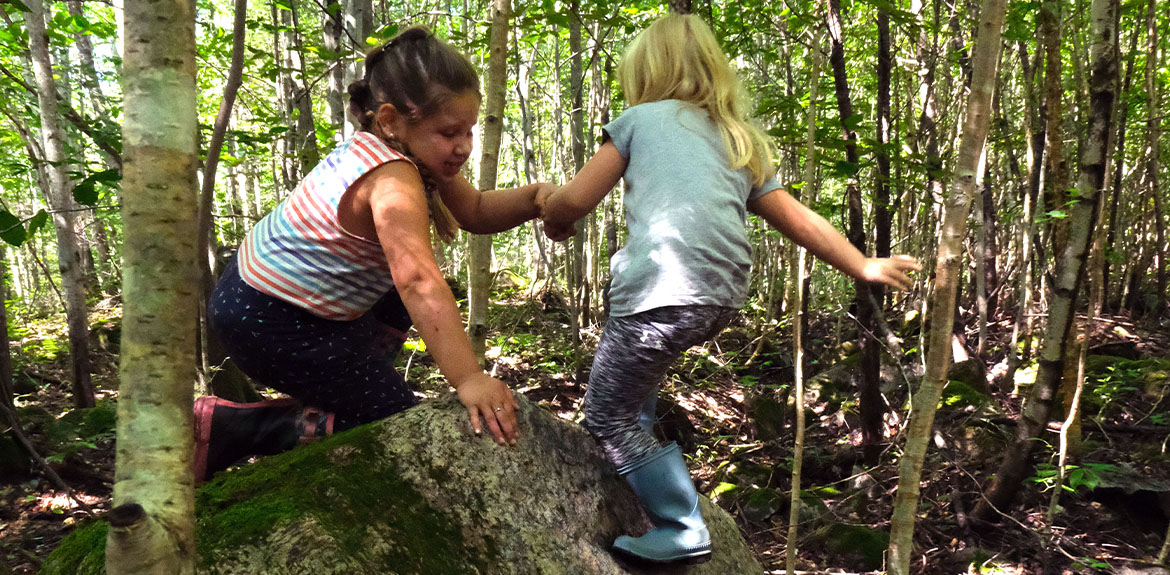
One of the unit’s goals is to study how NBE contributes to the overall development of children age 0–6.
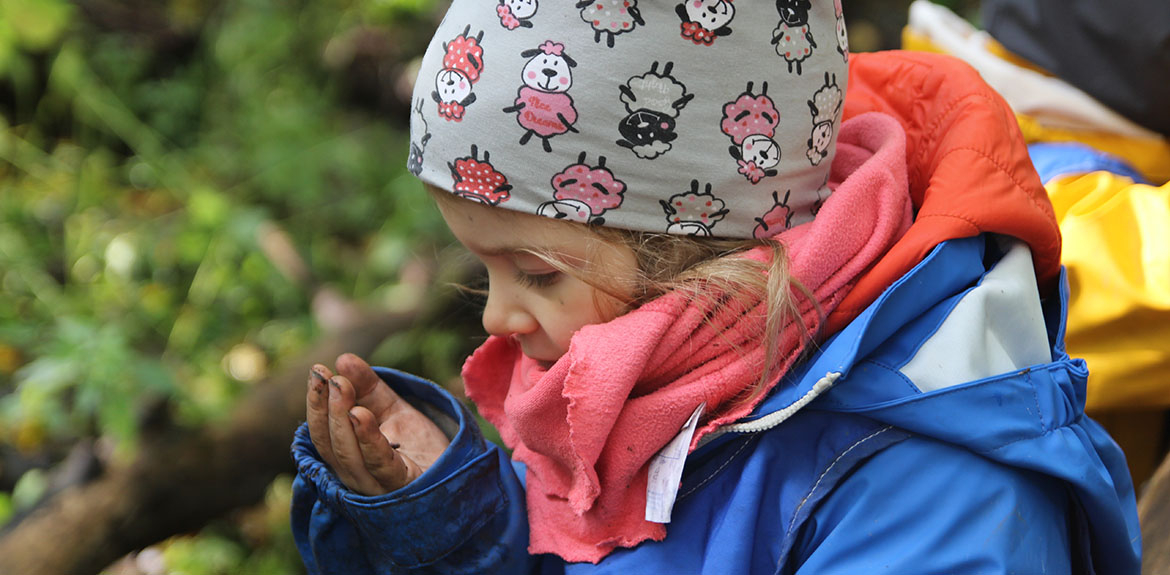
NBE promotes cognitive development in children through environmental exploration and play.
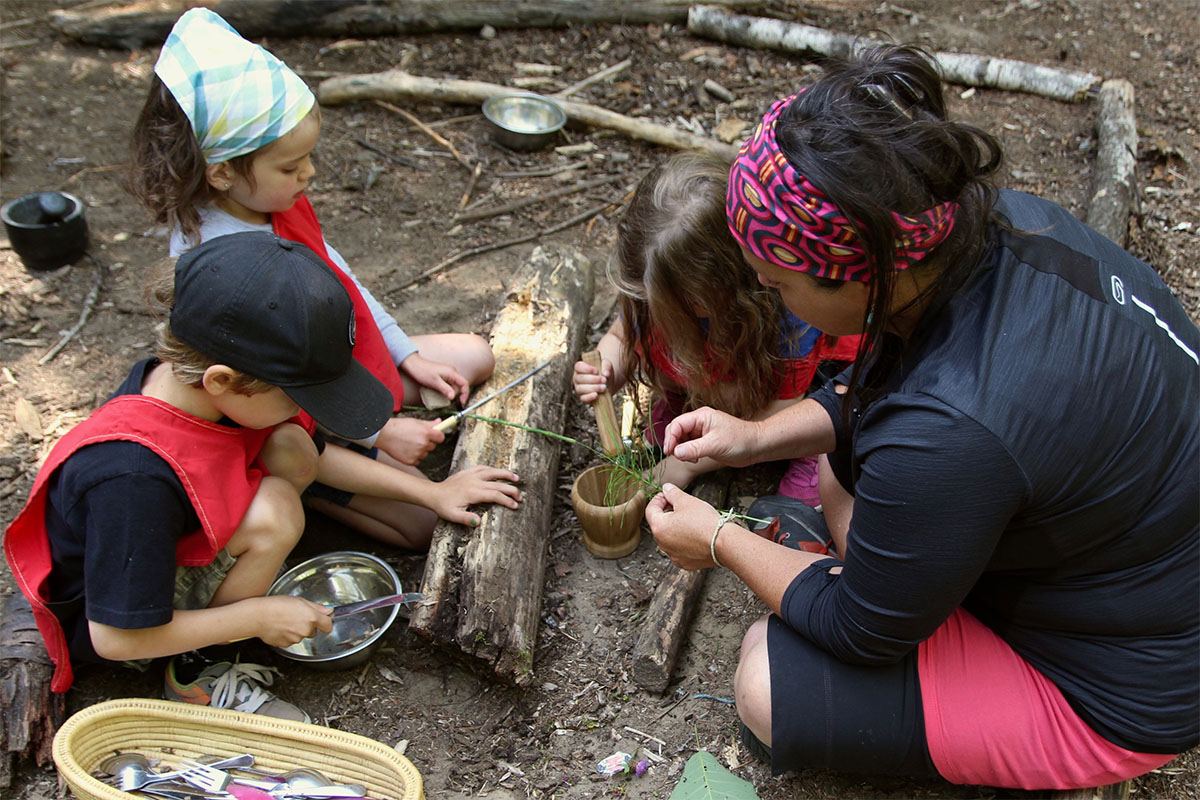
NBE encourages rich child–adult interactions that enhance the educational experience.
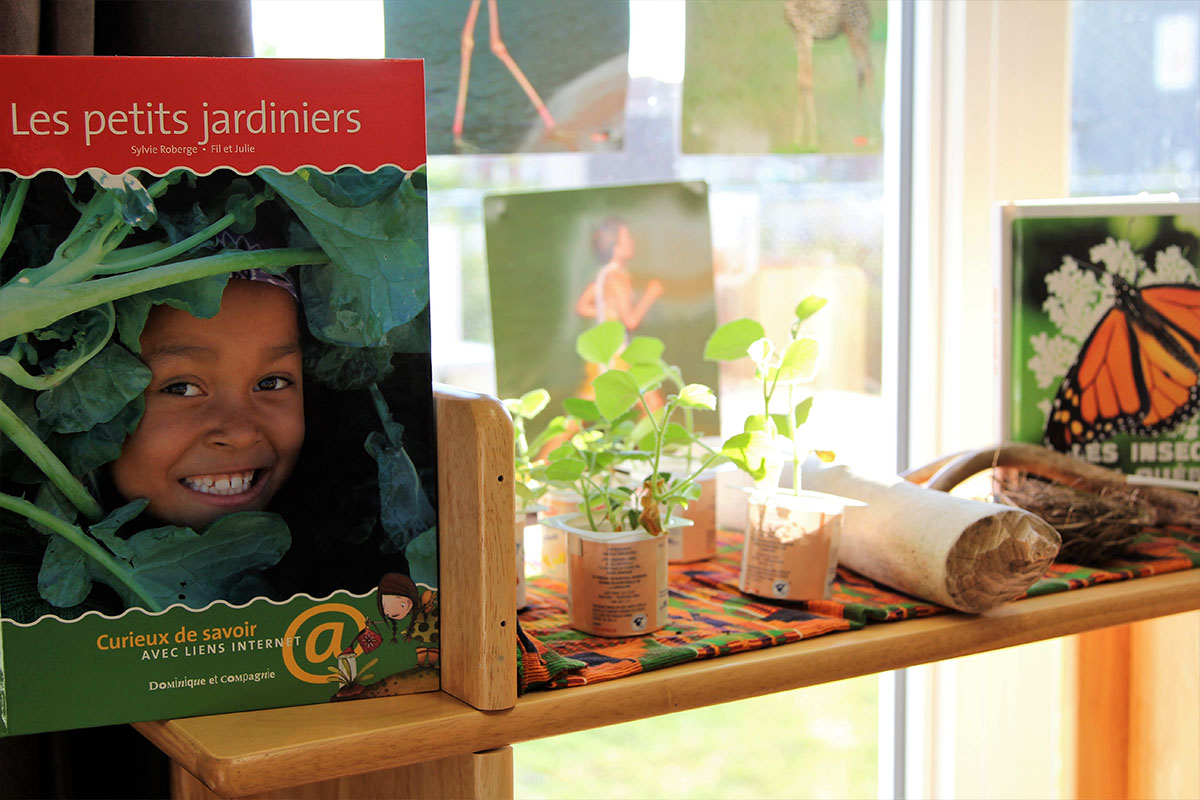
Bringing nature to children may mean exploring an urban park, immersing kids in a forest setting, or adding plants and natural elements to an indoor space.
La suite
In the coming years, Caroline Bouchard will continue leading the Petite Enfance, Grandeur Nature joint research unit’s work on early childhood NBE, developed in partnership with AQCPE with the support of Québec’s departments of education, health and social services, and family. In an ongoing dialogue between academics and practitioners, she will direct several projects to better understand how NBE contributes to the development of young children and the quality of the educational environments available to them.
Université Laval au coeur de nos vies
Baladodiffusion
Learn more about nature-based education and Caroline Bouchard’s work in her interview with Valérie Gaudreau, editor-in-chief of the newspaper Le Soleil.
ULaval Nouvelles article
Explore Caroline Bouchard’s journey, from the implementation of nature-based education in Québec childcare centres to the creation of the Petite Enfance, Grandeur Nature joint research unit.
